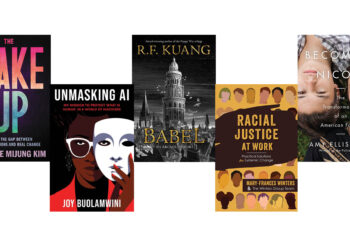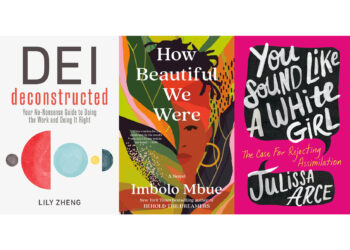- Image via Wikipedia
The SSP’s Annual Meeting was a huge success. Attendees were enthusiastic and energized by the program, and the meeting exceeded its goal of 600 attendees even in this down economy. And in the wake of this success, I have a couple of stray thoughts I’d like to share.
During Adam Bly‘s speech, he reflected on the mission of SEED Media (“Science is Culture”), and portrayed a vision in which culture benefits by embracing science more completely.
I wanted to ask him a question after his talk, but it would have been a buzzkill, so I didn’t. Basically, the question is about one nation that has a huge part of its culture based on science. In this dimension of their lives, citizens of this country are taught from a young age about the principles involved, provided with plenty of scientific information (even have it printed on items they use in this regard), regularly encounter protocols for performance based on scientific principles, and speak in common parlance using scientific terminology. Science has become culture.
Yet it isn’t working.
What am I talking about? The fact that the United States is a nation that stands apart as having a scientifically based food culture, one in which calories, carbohydrates, fats, proteins, vitamins, and minerals form the paradigm of what we eat, a culture aswim in scientific information about food, eating, diet, and exercise — yet we have the world’s most severe obesity epidemic, and eat probably one of the least healthy diets in the world.
In addition, our exercise culture is also quite scientific — watts, calories expended, heart rate, VO2, etc. Yet, almost precisely because we’ve couched it in these terms, it has been compartmentalized into health clubs, training activities, and bursts of personal willpower.
What’s gone wrong?
I’d love to know what he thinks on this subject.
One of the themes to the meeting was how much to involve the audience, whether this was beneficial, just trendy, or deleterious. I personally think we’re being arrogant if we think our readers can’t be trusted and don’t have important contributions to make, but others feel differently.
On the flight home, I finished reading Robert Kurson‘s excellent book, “Shadow Divers.” It’s the true story of two divers who discovered a German U-boat sunken off the coast of Long Island and had to go to extreme lengths to identify it, in the course of which they rewrote important pieces of World War II history. Because they delved into actual artifacts and explored the historical archives themselves, they discovered some things, the most important of which might have been:
. . . written history was fallible. Sloppy and erroneous assessments had been rushed into the official record, only to be presumed accurate by historians, who then published elegant reference works echoing the mistakes. Unless a person was willing . . . to ditch work and sneak off to Washington, chisel away at mountains of opaque original documents, sleep in fleabag motels, eat street-vendor hot dogs, and run outside every two hours to shovel quarters into a parking meter, he would presume history books to be correct. . . . each marveled at how easy it was to get an incomplete picture of the world if one relied solely on experts, and how important it would be to further rely on oneself.
These two non-expert divers went places experts couldn’t and wouldn’t go, saw things as they actually were rather than relying on received wisdom, and reported accurately and faithfully on what they saw. We need divers, explorers, and non-expert insights based on real-world experience and empirical evidence. That’s part of what makes science so powerful. It’s not dogma.
Again, a great meeting. I hope everyone had safe travels, and has a good weekend.
Discussion
1 Thought on "Two Thoughts After the SSP Annual Meeting"
Adam Bly may have over-reached for impact; “Science and Culture” is a more useful frame, I think. I’d be very interested in his publications if they explored the cultural dimensions and impact of our scientific endeavors.
I’ll take a pass if the literature is consistent with what is being served up by contemporary nutritionalism. Big business is pumping out enough of this and I’ve had my fill.

![Reblog this post [with Zemanta]](http://img.zemanta.com/reblog_e.png?x-id=4f316634-6c17-468c-9f9d-80e006bd76f7)


